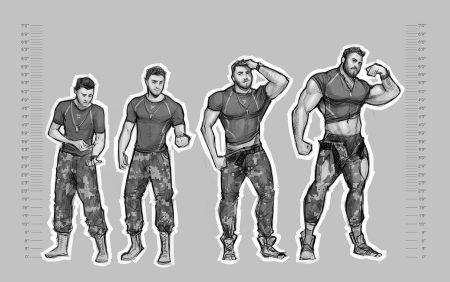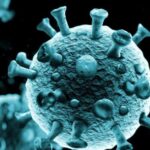February 23, 2018 – Back in March of 2013, an essay entitled Genetically Engineered Bioweapons: A New Breed of Weapons for Modern Warfare, appeared in the Dartmouth Undergraduate Journal of Science. The author of the paper described how the sequencing of genes could be altered to engineer enhanced biology for use in modern warfare. This was before CRISPR/Cas9, the genetic tool that can snip out and replace specific genes whether on the chromosomes of a pathogen or that within a human cell.
DARPA, the Defense Advanced Research Projects Agency, of the U.S. Pentagon, has been carrying out research for decades on ways to re-engineer biology whether it is to create a biological weapon to destroy enemy troops, or augmentation of humans biologically to create super soldiers. The science of super soldiers is referred to as transhumanism.
If you think this sounds like a Marvel comic it is understandable. But Stan Lee‘s Hulk is very much on the minds of Pentagon biological researchers. It’s not so much that they want to create a green monster, but rather they want to make soldiers impervious to pain. They want soldiers who when shot can continue to operate in the field and not bleed out, or go into hibernation or suspended animation until medics can apply first aid. For this purpose, the Pentagon is studying the biology of hibernation in mammals so that human soldiers can do the same.
The Pentagon is also studying the brains of whales and dolphins, animals that never sleep because they would drown if they did. These are animals that can switch off the left or right brain putting one of them into sleep mode while the other side remains alert and active. Other research is looking at how muscles can be re-engineered biologically to increase endurance dramatically, to give soldiers the ability to leap 3-meter (10 foot) high walls or lift 10 times their own weight. There is even research into human-computer integration so that brain cells can be adapted to accept instructions transmitted to a receiver in a soldier’s brain. A human-computer interface could give soldiers on the battlefield the ability to share thoughts instantaneously without a word spoken, or to receive orders from a commander in response to changing battlefield conditions. Some even see the possibility of using such interfaces to turn human soldiers into biological robots working under a common central controller, either human or artificial.

More frightening is the use of biology at the microscopic level to lay waste to an enemy military or civilian population. The same technologies that can swap out defective genes for good ones, is capable of doing the opposite. Through the application of modern gene editing tools, one can turn a therapy into a pandemic with changes to bacteria that turns these single-celled creatures into weapons of mass devastation.
Much of the research DARPA is doing falls under what the Pentagon refers to as the black budget, a secret appropriation of funds amounting to well over $50 billion in 2017. How much of that is being spent on biological warfare remains a secret? But for sure there is plenty of money being set aside for both sides of the bio-weapon world: enhancing humans, and both creating new types of pathogens as well as the antidotes to ensure that your side isn’t killed by a weapon of its own invention.
If the United States is doing this, what other countries are doing similar research?
When the United States re-established diplomatic relations with Cuba its embassy staff in Havana started complaining about dizziness and headaches. Americans were sent home out of fear that they were being exposed to some form of bio-weapon. Subsequent investigation showed that this was not the case. The Cuban government was as dumbfounded as the new consular officers and families sent by the U.S. to Cuba. That’s not to say that Cuba hasn’t done research on biological warfare. It just wasn’t unleashing one of its creations on the American embassy staff.
But other countries have known biological warfare programs even though 192 governments have signed on to the Chemical Weapons Convention under the auspices of the United Nations. The signatories include China, North Korea, Russia, and the United States even though all of these governments run top-secret biological weapons and bio-engineering programs.
In 1969 the United States declared it had unilaterally given up biological weapons programs. Clearly, that is not the case since the black budget continues to fund significant DARPA research into genetic re-engineering in support of the military. The Soviet Union, now Russia, in signing United Nations resolutions related to biological weapons back in 1992, vowed to end its extensive research in the field. But that is not the case as Russia continues to explore weaponized bacteria and viruses for use in war as well as to destabilize nations it opposes. North Korea demonstrated its biological program to the whole world in 2017 when two women acting as North Korean operatives attacked Kim Jong-un’s older brother, Kim Jong-nam, with a nerve agent at Kuala Lumpur’s airport in Malaysia. The brother died within a few hours. And although China publicly states it is in compliance with the Chemical Weapons Convention, the country is believed to have an active program to weaponize biological agents.
What is sad about all of this is the misapplication of both the science and technology capable of helping us eradicate diseases, enhance humanity, and improve the quality of life for all life here on Earth.

















